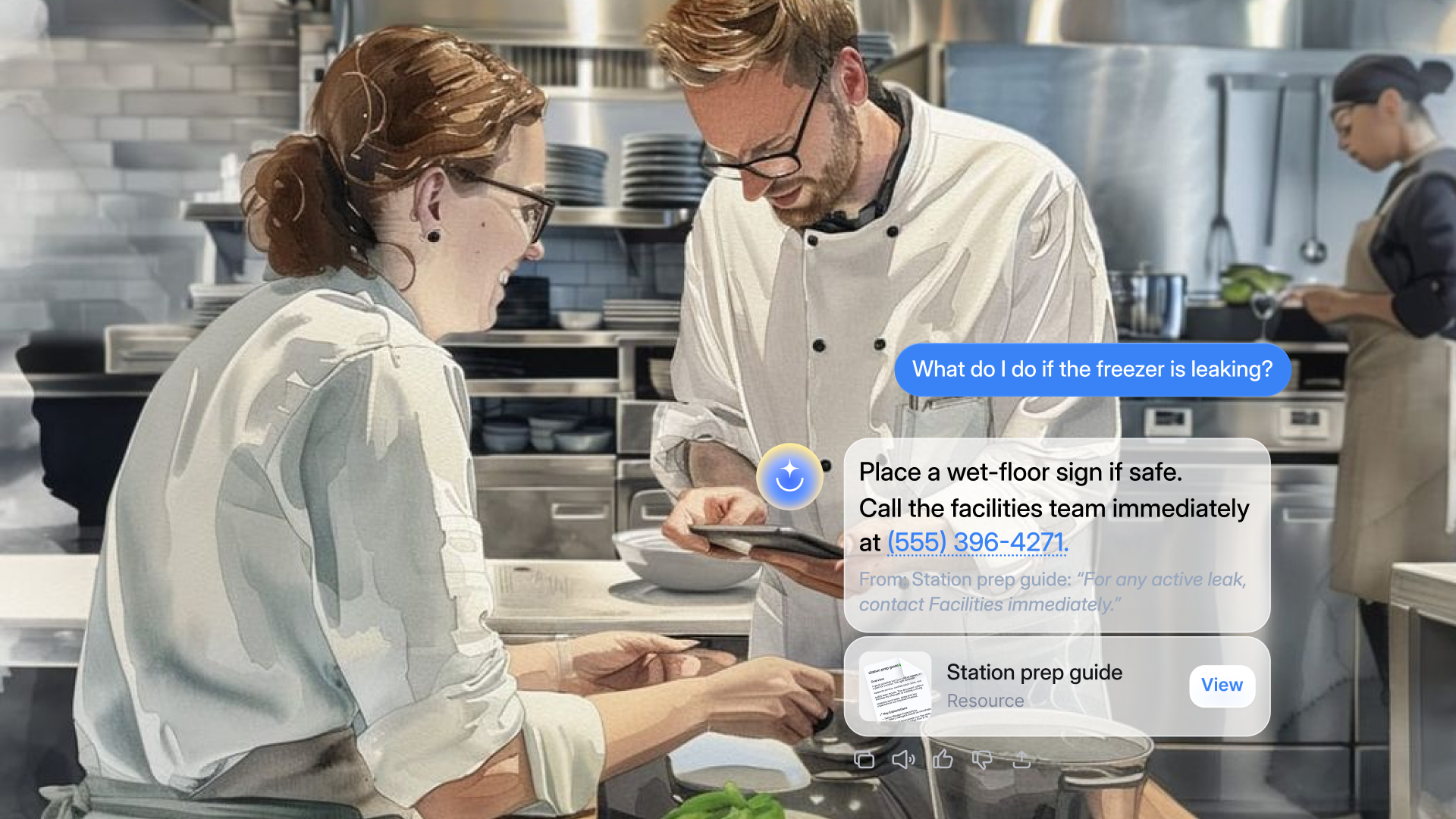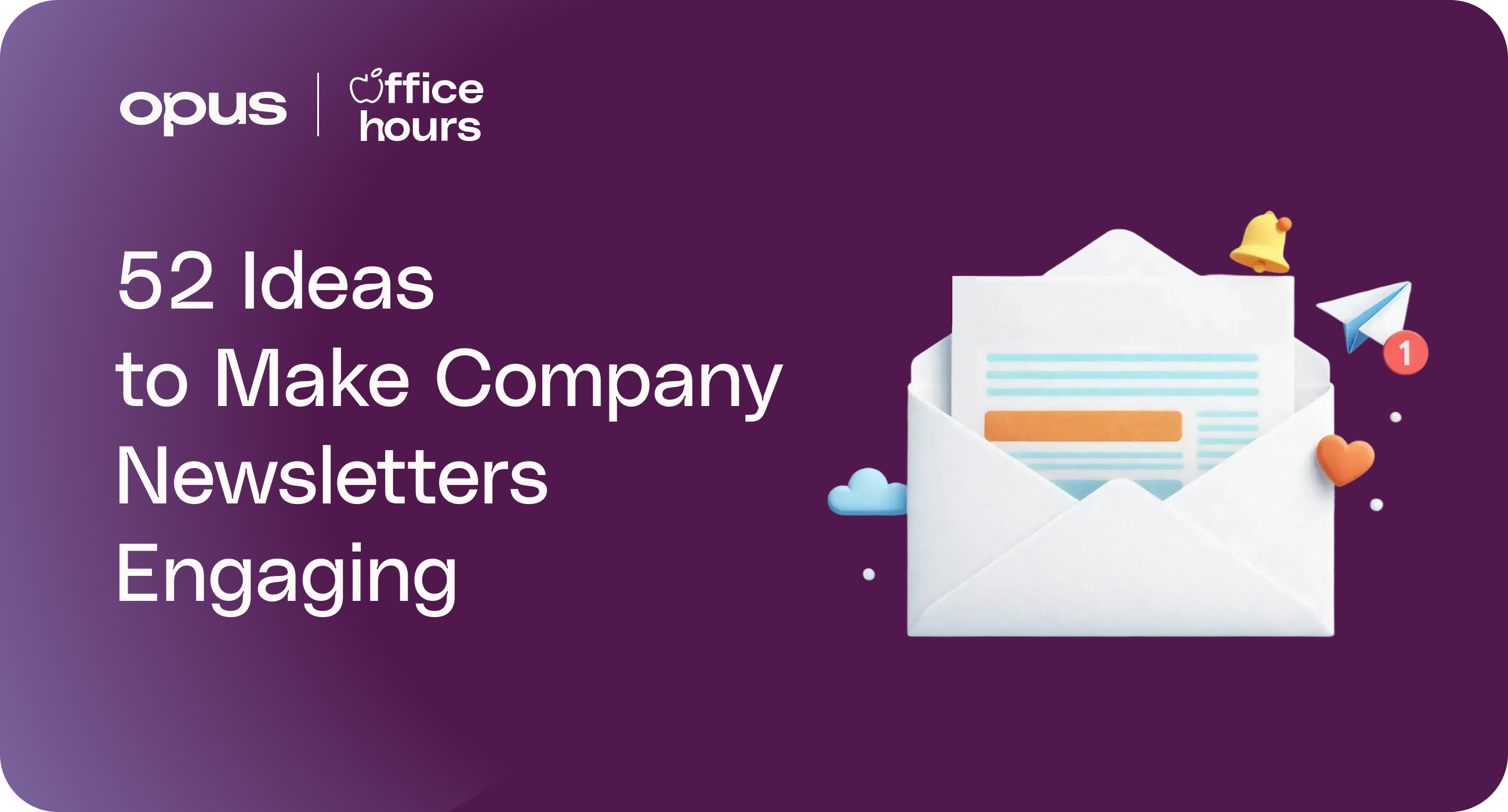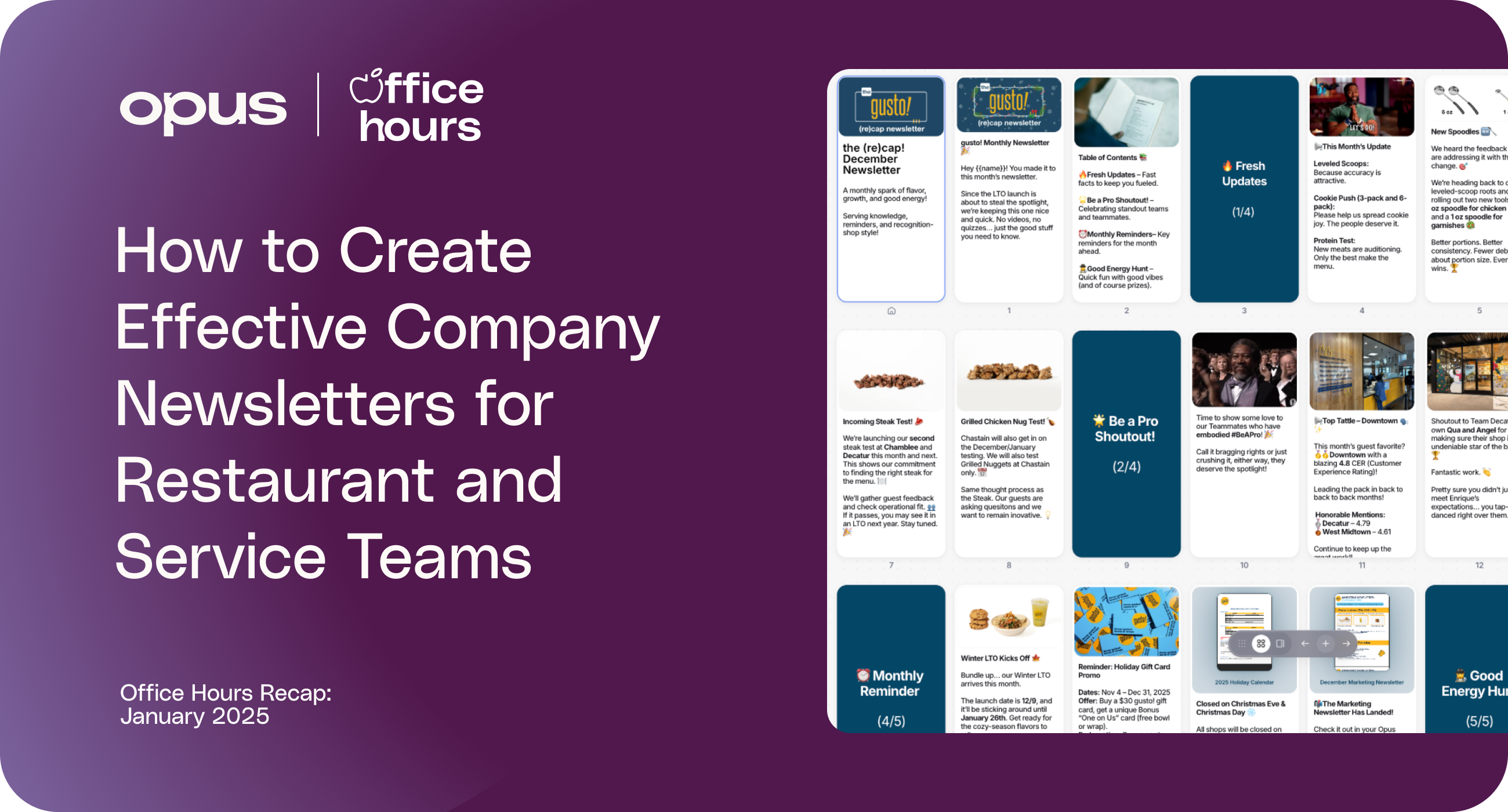AI search gives managers and hourly employees instant answers. Even saving 10 min a day leads to meaningful time savings while improving the guest experience. Learn how here.
The Real Problem: Your Store Managers Are Human Google
Picture peak hours at any location. Three associates need policy clarification. A new team member can't remember the procedure for a special request. The shift lead needs the large party protocol. Your manager? Moving between stations, answering questions they've answered hundreds of times before.
This isn't a training failure. It's an information access problem.
Store teams need answers to hundreds of questions every shift. Traditional solutions—binders, posters, asking managers—break down when you need them most. During peak hours, managers become bottlenecks. New team members hesitate to ask "dumb" questions. Non-English speakers struggle with critical safety information.
AI search solves this by making every answer instantly accessible to every team member, in any language, without interrupting operations.
How AI Search Works for Store Operations
Think of AI search as having your most experienced manager available to every team member, 24/7, speaking every language your team needs.
Here's what happens: You upload your existing materials—training videos, PDFs, standard operating procedures, employee handbooks. The AI reads everything, understands it, and makes it searchable by natural questions. When someone asks "Can I substitute this item?" the AI finds the answer from your actual policies and procedures.
What Makes Opus’ AI Search Different from Google
- It only knows YOUR information: No random internet answers, just your approved procedures
- It respects permissions: Associates see associate information, managers see management policies
- It speaks every language: Ask in Spanish, get answers in Spanish from your actual materials
- It learns from videos: Training demonstrations become searchable by every word spoken
📌Learn more about Opus AI-search product “Ask Opus” here
4 Strategies to Get The Most Use of AI Search
1. Start Where You Are
The biggest misconception? That you need organized, formatted content to begin.
Jeff Silver, CTO at Opus Training, explains: "Coverage beats structure every time." His platform serves multi-location brands across hospitality, retail, and service sectors where teams upload their existing materials as-is.
What you can upload today:
- Employee handbooks
- Training videos
- Standard operating procedures
- Equipment manuals
- Safety protocols
- Compliance documentation
The AI extracts knowledge from everything. Videos become searchable through automatic transcription. PDFs get indexed for instant search.
📌 Action today: Upload your top 20 most-requested documents into your Resource Library. Don't reorganize. Just upload and start getting value immediately.
2. Write for Questions, Not Documents
Your team doesn't think "I need to reference Policy Document 3.2." They think "What do I do if a customer has an allergic reaction?"
Format your content with actual questions your team asks (down to FAQ!):
- "How do I process a refund?"
- "What's included in our service package?"
- "Can customers make special requests?"
- "What do I do if the system crashes?"
3. Enable Your Diverse Workforce
Multi-location operations often employ linguistically diverse teams. Your Spanish-speaking team members need the same critical safety and procedural information as English-speaking colleagues.
Opus's AI search includes automatic translation across 100+ languages. Team members search in their language and receive answers in that language—pulled from your actual materials. Learn more about multilingual training capabilities.
4. Use Search Analytics to Drive Training Strategy
With Opus, you get real-time reporting that shows:
- Most common questions (revealing knowledge gaps)
- Searches with no results (showing missing documentation)
- Peak search times (indicating operational stress points)
- Location-specific patterns (identifying sites needing support)
Export this data monthly to understand what your teams actually need to know and where to focus training efforts.
Your 3-Step Implementation Strategy

Step 1: Focus on High-Impact Use Cases
Based on data from our Office Hours, managers use AI search more frequently than hourly employees, and the most common searches involve SOPs and product/service information. Choose ONE operational challenge that causes daily friction.
Common starting points by sector:
- Quick-service & fast casual: Product modifications and customizations
- Full-service hospitality: Allergen and dietary information
- Retail operations: Return policies and inventory procedures
- Fitness & wellness: Equipment usage and safety protocols
- Multi-site healthcare: Compliance and procedural standards
How to determine where to focus:
Decide what needs to be committed to memory and what can be referenced. There's an example for a typical restaurant.

💡 During an Opus Office Hours session, Melanie Isola shared how Gregorys Coffee focus on making their product information easily searchable, since that's their team's biggest pain point. Read the full recap here.
Step 2: Build Communication and Champions
Successful adoption requires sustained communication through multiple channels:
- Leadership explanation of business benefits
- Live demonstrations during shifts
- Manager champions who model the behavior
- Regular success story sharing
- Integration into standard procedures
💡 Jack from Bel Air Cantina's approach was simple: "Don't ask me, ask Opus" became the standard response, consistently redirecting questions until searching became habit. He shared that he saw their faces turn into this emoji 🤯 when he would live demo Ask Opus at the time of need.
Step 3: Provide Clear Guidance on Access
Address how teams will access AI search based on your operational reality. Consider:
- Current device and phone policies
- Peak service times when searches are most needed
- Trust level and team culture
- Physical layout of your locations
- Mix of roles and responsibilities
Some operations install shared tablets in key areas. Others modify phone policies for specific roles or times. There's no universal answer—choose what fits your operation and clearly communicate expectations to your team.
Common Mistakes to Avoid
- Waiting for perfect content: Start with what you have and improve weekly
- Making it IT-only: Operations must lead adoption, not technology
- Ignoring non-English speakers: Actively promote multilingual capabilities
- Launch and forget: Review search data regularly and add missing content
- Keeping it secret: Share the tool widely—it makes managers more effective, not replaceable
Is The Implementation Worth It? The Multi-Location ROI
Real Savings (50-Location Operation)
Manager time saved:
- 10 min/day × 50 locations × $25/hr = $152,000/year
Training efficiency:
- Faster onboarding and reduced classroom time
- New hires productive x% sooner
Manager retention:
- Reduced frustration from repetitive questions
- More time for meaningful leadership work
🙌🏽 With Opus Training, AI search is included in every plan—pure upside with no additional financial investment required.
Benefits Beyond Numbers
- Consistent information across all locations
- Confident compliance handling
- Supported new hires
- Managers focused on customer experience
- Reduced liability from accurate information
Why This Matters for Multi-Unit Operations
The service industry faces significant challenges: high turnover, labor shortages, and increasing operational complexity. Customers expect perfect information on allergens and product details. Teams speak multiple languages. Compliance requirements change regularly.
The traditional model—where managers hold institutional knowledge and transfer it through one-on-one training—doesn't scale effectively. AI search amplifies human knowledge, making every answer your best manager knows available to every team member, instantly.
Operations implementing AI search today are practical leaders who recognize their teams deserve better than hunting through binders during peak hours.
Start Today
You need three things:
- One specific problem to solve
- Your existing materials
- One location to pilot
Your team is already asking these questions. Give them immediate, accurate answers.
Resources and Next Steps
Ready to explore AI search for your store operations?
- See how AI search works with real examples
- Build your knowledge foundation with our tactical guide
- Create quick-reference resources using Opus Docs
- Get the complete rollout checklist
FAQ
Q: How do I handle the most common questions my managers get?
A: Ask your managers to write down every question they answer tomorrow. Create one-page answers for the top 5, titled with the exact question. Use Opus Docs to create and update these quick-reference resources easily within the platform.
Q: What if my content isn't organized?
A: Organization doesn't matter. Upload what you have—the AI extracts knowledge from any format.
Q: How long before we see results?
A: Most operations see reduced manager interruptions within the first week of focused use.
Q: What about teams that don't speak English?
A: Opus's AI search works in 130+ languages automatically. Teams search and receive answers in their preferred language.
Q: How does this work for franchise operations?
A: Franchisors can provide brand standards while franchisees add location-specific information. Permission settings ensure teams only see relevant content.
Q: Can seasonal or temporary staff use this?
A: Yes. AI search is especially valuable for seasonal operations where you need to onboard quickly and can't rely on institutional knowledge.
Not ready for implementation? Join our monthly Office Hours where L&D leaders share what's working. Register free.






